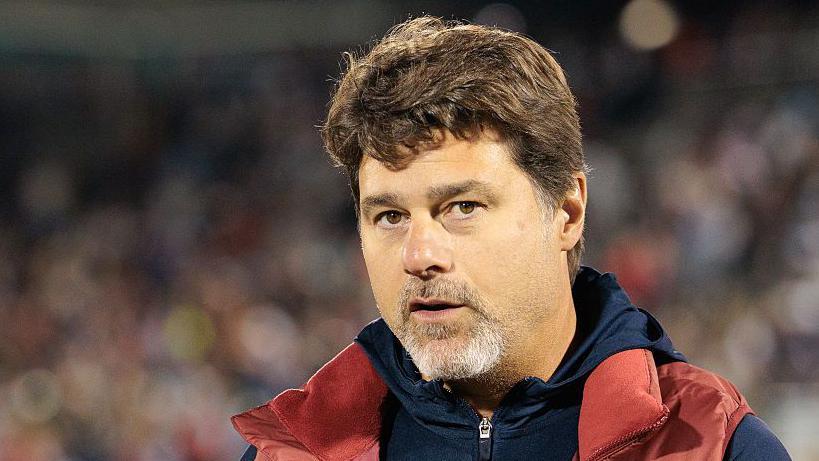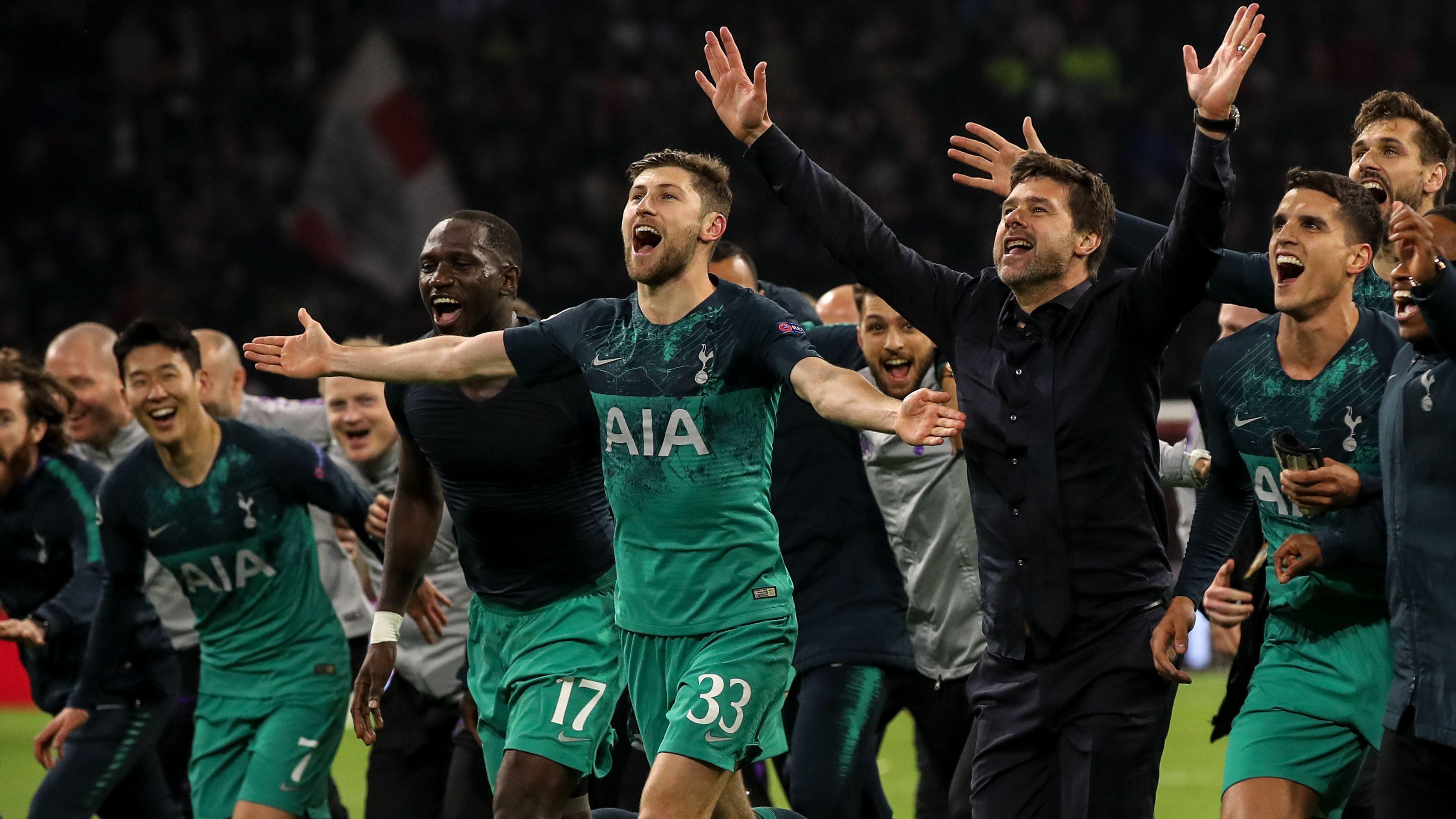Pochettino’s Longing for the Premier League: A Cultural Clash in American Soccer’s Rise
Mauricio Pochettino, the former Tottenham Hotspur manager, has recently taken on the role of head coach for the United States men’s national soccer team, a position he assumed in September 2024. His tenure has been marked by both promise and challenges, as he prepares the team for the 2026 World Cup, which the U.S. will co-host alongside Canada and Mexico. Pochettino’s longing for the Premier League, which he describes as “the best league in the world,” raises questions about the cultural and competitive landscape of soccer in the United States, a country where the sport has historically struggled to gain the same level of popularity as basketball, American football, and baseball.
Pochettino’s career in the Premier League has been notable. He began his English journey with Southampton, where he made a significant impact, before moving on to Tottenham Hotspur. At Spurs, he achieved remarkable success, leading the team to a Champions League final in 2019 and securing a second-place finish in the Premier League during the 2016-17 season. Despite these accomplishments, Pochettino’s time at Tottenham was marred by a lack of silverware, a fact that continues to haunt him. His subsequent stint at Chelsea was short-lived, and he later spent 18 months at Paris Saint-Germain, where he won Ligue 1 and the French Cup. However, critics often point to his inability to secure major trophies during his time in England as a blemish on his otherwise impressive resume.
Pochettino’s comments about missing the Premier League reflect a deeper sentiment shared by many coaches and players who have experienced the intensity and competitiveness of English football. The Premier League is renowned for its high stakes, passionate fanbase, and the relentless pace of its matches. Pochettino’s desire to return to this environment speaks to the allure of a league that has become a global phenomenon, attracting talent from around the world. His acknowledgment of the Premier League as the “most competitive league” highlights the challenges he faces in the U.S., where soccer is still establishing its identity and fanbase.
As he navigates his role with the U.S. national team, Pochettino has encountered several obstacles. With a record of 11 wins in 20 matches, his tenure has not been without criticism. Losses to traditional rivals such as Mexico and Canada, as well as defeats to teams like Turkey and Switzerland, have raised questions about his ability to instill a winning mentality in his players. Furthermore, Pochettino has expressed frustration over the cultural differences he has encountered, particularly regarding the mindset of American players and the support for the national team. The sight of visiting fans outnumbering American supporters at home matches has been a stark reminder of the challenges he faces in fostering a strong soccer culture in the U.S.
The cultural reset that Pochettino refers to is indicative of the broader evolution of soccer in America. The Major League Soccer (MLS), established in 1995, has made significant strides in recent years, particularly with the arrival of high-profile players like Lionel Messi. This influx of talent has sparked interest among younger generations, who are increasingly drawn to soccer as a viable career path. Pochettino’s assertion that Messi’s presence is inspiring kids to take up soccer rather than traditional American sports underscores the potential for growth in the sport’s popularity.
However, Pochettino’s approach to coaching American players has not been without its critics. The notion that he must adapt to the “culture of the American player” has been met with skepticism. Pochettino argues that the fundamental principles of soccer transcend cultural boundaries, emphasizing the need to translate the universal language of football to American players. His belief that the essence of competition should remain constant, regardless of nationality, reflects a broader philosophy that could be pivotal in shaping the future of soccer in the U.S.
The challenges Pochettino faces are compounded by the unique demands of international management. Unlike club football, where coaches have the luxury of daily training sessions and consistent communication with players, international coaches must work within a limited timeframe. The sporadic nature of international fixtures can leave coaches feeling disconnected from their players, hindering their ability to implement long-term strategies. Pochettino’s frustration with this aspect of his role is palpable, as he yearns for the continuous engagement that club management offers.
The historical context of soccer in the United States adds another layer of complexity to Pochettino’s mission. The U.S. men’s national team has only reached the quarter-finals of the World Cup once, in 2002, and has often struggled to compete on the global stage. The sport’s growth in the U.S. has been gradual, with the MLS evolving from a fledgling league to a more competitive entity. However, the perception of soccer as a secondary sport compared to American football and basketball remains a significant hurdle.
Pochettino’s vision for the U.S. national team involves not only improving performance on the field but also fostering a deeper connection with the sport among American fans. His emphasis on building a cohesive team culture and instilling a winning mentality is crucial for the team’s success in the upcoming World Cup. As he works to reshape the mindset of his players, Pochettino’s experience in the Premier League may serve as a valuable asset, providing insights into the competitive spirit required to succeed at the highest levels of the game.
In conclusion, Mauricio Pochettino’s longing for the Premier League and his efforts to navigate the cultural landscape of American soccer highlight the complexities of his role as head coach of the U.S. national team. As he prepares for the 2026 World Cup, the challenges he faces are emblematic of the broader struggle to elevate soccer’s status in a country where it has historically played second fiddle to other sports. The intersection of Pochettino’s Premier League experience and the evolving soccer culture in the U.S. will undoubtedly shape the future of the sport in America.

Former Tottenham manager Mauricio Pochettino says he is "missing" the Premier League and would like to return in the future.
Pochettino, currently preparing for the 2026 World Cup as head coach of the United States, has enjoyed three different spells in the English top flight.
He joined Southampton after leaving Espanyol, then took charge of Spurs, who he led to the Champions League final in 2019, and went on to manage Chelsea.
"The Premier League is the best league in the world," he told BBC Sport.
"Of course I am missing it. I am so happy in America but also thinking one day to come back to the Premier League. It’s the most competitive league."
Aside from an 18-month stint at Paris St-Germain, where the club won Ligue 1 and the French Cup, his critics would point to the lack of silverware on his CV.
It is clear from speaking to Pochettino that it particularly rankles from his time at Tottenham.
The 53-year-old spent five years at Spurs between 2014 and 2019, guiding the north London club to a second-place finish in the 2016-17 Premier League season, the EFL Cup final in 2015 and the final of Europe’s elite club competition.
"I think we were so close in Tottenham, we nearly touched it [winning the Champions League and Premier League]. That is a thing that I would want to achieve," added Pochettino, who remains in contact with the man who sacked him, Daniel Levy.

Levy, 63, surprisingly left his role as executive chairman at Tottenham in September after 24 years.
During that period the club won the 2008 EFL Cup and the 2025 Europa League, and also moved into a new stadium.
"I was very surprised [at Levy’s departure]. His legacy is there. It’s amazing what he did for the club," added Pochettino.
"My relationship always was good with him. During my period in Tottenham and after I left.
"He was a really important person because he gave me the possibility to manage a club like Tottenham. That is, for me, one of the best clubs in the world, with an amazing fanbase."
‘The language of football is universal’
In September 2024, Pochettino was handed the challenge of leading the United States into a World Cup they will co-host with Canada and Mexico.
Yet it has not all been plain sailing.
Pochettino has won 11 of his 20 matches at the helm and defeats to the likes of Mexico (twice), Panama, Canada, Turkey, Switzerland and South Korea have drawn criticism.
He has also reportedly faced issues around changing the culture and mindset of his players and been unhappy about arriving at home matches only to find that the visiting supporters significantly outnumber American fans.
And all this has come while he acclimatises to the different demands placed on an international boss.
"The intensity is completely different because you need to arrive for a few days to prepare the game and play, prepare another game, play, and go back," Pochettino continued.
"After November, we are going to have three months until March to prepare another game. In a national team you are desperate to coach the players.
"You feel empty because after the second game you cannot have communication and you cannot keep working on improving things."
The United States have only ever reached the quarter-finals of the World Cup on one occasion, in 2002.
The MLS was formed in 1995, one year after the US hosted the 1994 World Cup, and has improved and grown significantly since then, with Lionel Messi’s arrival in 2023 evidence of a changed landscape.
"I think players like Messi are helping the kids, not only when the kids want to play basketball or American football or baseball, they now want to play also soccer," added Pochettino, who stressed his employers have told him to use the term soccer rather than football to avoid public confusion.
He added: "The motivation is massive. Sometimes you feel that people don’t understand too much.
"You find some coaches that say, ‘oh you know, you need to know the culture of the American player’. I say, ‘No, I know the most important thing – the culture of football and soccer. We need to translate the culture of football to the American player’.
"I think after one year we are making great progress. We are building [ideas] with people that the language of football is only one and it doesn’t care if you are American, Brazilian or English. Our football is [to] compete in the way that you need to compete, if you want to win."
- Follow your club with BBC Sport
- Listen to the latest Football Daily podcast
- Get football news sent straight to your phone
